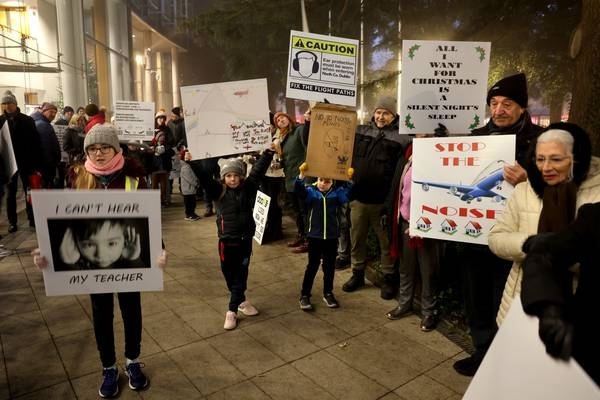International Criminal Court arrest warrant for Putin: What happens next?

While Russia is correct that because it doesn’t recognise the International Criminal Court (ICC) it’s not obliged to comply with the warrants issued for Vladimir Putin on Friday, the problem for Putin is that if he now sets foot in any of the court’s 123 member states, he faces swift arrest. Putin is the third sitting president to face warrants from the ICC. But unlike Omar al-Bashir of Sudan and the late Libyan dictator, Col Muammar Gadafi , he’s well-accustomed to strutting the world stage as of right. Fencing him in legally will add a frustrating dimension to his new pariah status. While signatories to the Rome Statute that set up the ICC do not, ironically, include the US – whose hand the Kremlin inevitably sees behind Friday’s warrants – President Joe Biden welcomed the move at the weekend and said he was in no doubt that Putin had “clearly committed war crimes”. Stephen Rapp, US ambassador-at-large for war crimes issues at the Obama White House, was more measured but in no doubt about the impact. “If he travels, he risks arrest. This never goes away. In addition, Russia cannot get relief from sanctions without compliance with the arrest warrants.” The ICC warrants against Putin allege war crimes, specifically the illegal deportation of children from occupied areas of Ukraine to far-flung regions of Russia where they will have little possibility of being reunited with their families – perhaps even after the war. Russia’s children’s commissioner, Maria Lvova-Belova, who’s been directing the transfer of the children to Russia, allegedly a humanitarian strategy to remove them from harm’s way, faces similar charges. Ukraine claims that as many as 16,000 children may have been illegally transferred. “Children cannot be treated as spoils of war,” said ICC prosecutor Karim Khan. “One need only be a human being, not a lawyer, to know how egregious a crime this is. Those who believe they can commit a crime in daytime and sleep well at night should look back at history.” [ Russian spy exposed trying to infiltrate Hague court studied in Ireland ] [ Arrest warrant for Putin for war crimes in Ukraine welcomed in UK and US ] Given that the Kremlin has dismissed the ICC warrants as “outrageous, unacceptable and irrelevant”, and former president Dmitry Medvedev likened them to “toilet paper”, there is certainly no possibility that Putin will be extradited in the short to medium term, barring regime change. In addition, the ICC has no “police force” of its own and depends on the willingness of member states to hold and transfer fugitives to its detention centre in The Hague – a willingness that in the case of al-Bashir, for example, was more often honoured in the breach than in the observance. This is where, despite all the well-justified international outrage at the past 13 months of slaughter in Ukraine, the reality of procedure kicks in, observes Sir Geoffrey Nice, who prosecuted the war crimes case against former Serbian president Slobodan Milosevic, who died in detention in 2006. “Unless you have a mechanism for trials in absentia, you have to get the defendant before an international court. If you can’t do that , there will be no war crimes trial.” Does that mean the process is effectively at a dead end just 48 hours after the issuing of the ICC warrants, described by President Volodymyr Zelenskiy as “historic” and by Ukraine’s prosecutor-general, Andriy Kostin, as “just the beginning”? [ China’s support is crucial for Putin, giving Xi leverage in encouraging Putin to enter peace talks ] “There could be a trial tomorrow morning as far as I’m concerned,” says Nice. “It should be held in Ukraine by Ukrainians, in the Ukrainian language. Putin himself would not need to be present.” Where Putin will undoubtedly be vigorously present is in Moscow this week to meet Chinese president, Xi Jinping, at the start of a three-day state visit during which Xi is expected to unveil a 12-point plan for a ceasefire in Ukraine – a plan the US anticipates will be little more than a “ratification of Russian conquest”. Like the US and Russia, China is not a signatory to the ICC’s Rome Statute. A successful outcome to the talks would herald a consolidation of the “no limits” partnership between the two countries, leaving Putin substantially strengthened and in no doubt that Friday’s warrants were, indeed, much ado about nothing by the West.
The growing menace of annoying sounds that affect our health
Clare Dunne: ‘Let’s stop being obsessed with getting everything by the time you are f**king 30’
:quality(70)/cloudfront-eu-central-1.images.arcpublishing.com/irishtimes/UGLSE4AIWVCNXFOE5NP735MNMI.JPG)
Sally Rooney: Renters are being exploited and evictions must be stopped
:quality(70)/cloudfront-eu-central-1.images.arcpublishing.com/irishtimes/3CJICZDLYBEUVPQ2VFEJT7VLTY.jpg)
Ireland got there in the end but boy oh boy, they’d put years on you
:quality(70)/cloudfront-eu-central-1.images.arcpublishing.com/irishtimes/UPZ6J7KQ63GGJ5JE3B3V2OCCWA.jpg)



